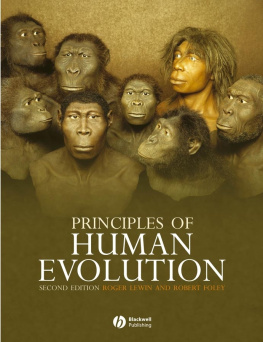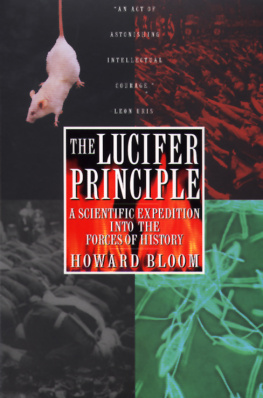George Kingsley Zipf - Human Behavior and the Principle of Least Effort: An Introduction to Human Ecology
Here you can read online George Kingsley Zipf - Human Behavior and the Principle of Least Effort: An Introduction to Human Ecology full text of the book (entire story) in english for free. Download pdf and epub, get meaning, cover and reviews about this ebook. year: 2016, publisher: Ravenio Books, genre: Romance novel. Description of the work, (preface) as well as reviews are available. Best literature library LitArk.com created for fans of good reading and offers a wide selection of genres:
Romance novel
Science fiction
Adventure
Detective
Science
History
Home and family
Prose
Art
Politics
Computer
Non-fiction
Religion
Business
Children
Humor
Choose a favorite category and find really read worthwhile books. Enjoy immersion in the world of imagination, feel the emotions of the characters or learn something new for yourself, make an fascinating discovery.
- Book:Human Behavior and the Principle of Least Effort: An Introduction to Human Ecology
- Author:
- Publisher:Ravenio Books
- Genre:
- Year:2016
- Rating:5 / 5
- Favourites:Add to favourites
- Your mark:
- 100
- 1
- 2
- 3
- 4
- 5
Human Behavior and the Principle of Least Effort: An Introduction to Human Ecology: summary, description and annotation
We offer to read an annotation, description, summary or preface (depends on what the author of the book "Human Behavior and the Principle of Least Effort: An Introduction to Human Ecology" wrote himself). If you haven't found the necessary information about the book — write in the comments, we will try to find it.
Human Behavior and the Principle of Least Effort: An Introduction to Human Ecology — read online for free the complete book (whole text) full work
Below is the text of the book, divided by pages. System saving the place of the last page read, allows you to conveniently read the book "Human Behavior and the Principle of Least Effort: An Introduction to Human Ecology" online for free, without having to search again every time where you left off. Put a bookmark, and you can go to the page where you finished reading at any time.
Font size:
Interval:
Bookmark:
An Introduction to Human Ecology
Nearly twenty-five years ago it occurred to me that we might gain considerable insight into the mainsprings of human behavior if we viewed it purely as a natural phenomenon like everything else in the universe, and if we studied it with the same dispassionate objectivity with which one is wont to study, say, the social behavior of bees, or the nest building habits of birds. The present book reports the results of the extended inquiry that ensued in the course of those years, and which led to the disclosure of some fundamental principles that seem to govern important aspects of our behavior, both as individuals and as members of social groups.
It is inescapable that the attitude of the natural scientist towards human behavior will differ from that of the man or woman of affairs who is faced with the practical need of solving urgent human problems, even though the two attitudes are by no means irreconcilable. Thus the scientist hopes that from an objective study of the actual ways that we human beings do in fact behave, he may disclose the nature of the underlying principles that govern our conduct. But though the scientists interests are said to stop at that point, he must nevertheless admit that a knowledge of these underlying principles will inevitably help others to live more efficiently, whether as individuals, or as members of teams that co-operate and competeand whether in the roles of those who primarily do the leading, or in the roles of those who primarily do the following.
After all, the basic natural principles that govern mans responses to the incentives of prospective rewards, or that govern the proportion of executive leaders to followers (in corporation, labor union, army, political party, or social club), or that govern the rise and decline of fashions, or that govern the distribution of relative power and control in any dominance system, from the family unit to the nation, or that govern the circulation of persons, goods, services, ideas, and information over the earths surface in the exchange of the products of our laborjust to enumerate a few of the principles that we shall treatare not likely to remain idle curiosities, so long as each man must daily co-operate and compete with others in order to live. Nor are these principles particularly out of place at the present time, when we seem to be faced with an impending planned economy in which a few persons will tell many others how they should behaveoften perhaps without regard to how people do behave.
On the other hand, just because we treat objectively and dispassionately of the mainsprings of human behavior, without any particular reference to how people should behave, that does not necessarily mean that I for one feel personally obliged to deprecate the almost universal belief that all mankind should co-operate and get along together like one happy team that is bent upon social progress. Nevertheless I do note that, in spite of this universal belief, there is virtually no agreement as to the particular ways and means whereby the worthwhile objective of universal human cooperation is to be achieved.
It is obvious that some persons and groups have personal and group preconceptions as to precisely how the world should co-operate. These preconceptions are sometimes so deeply rooted that the individuals in question can barely talk with others whose similarly profound preconceptions happen not to agree with their own. In so doing they seem to block communication, and thereby to impede the better world understanding and co-operation they so fervently desire. It is further obvious that many of these persons and groups are so rigid and inflexible in their preconceptions that they are not to be budged from them either by incentive rewards of any amount or by threats of direst harm.
Neither the natural scientist nor the practical social engineer can afford to ignore the power of these preconceptions, to which even the best intended incentives are often subordinate and from which, only too often, the gravest individual and group misery can result.
Nevertheless, to the natural scientist, mans preconceptions do not belong to some other world, but instead are merely further natural phenomena. As such they are a part of the total natural phenomenon of human behavior and merit an investigation into their mainsprings quite as much as the rest of human behavior. Indeed, in many situations, the preconceptions involved are largely determinative of the rest of the behavior.
Our emphasis upon the effect of mans preconceptions is by no means new to present-day thinking, even though, in actual practice, a given persons attitude towards a particular vocabulary of individual or group preconceptions that confront him may depend upon what his particular problem is.
Thus, for example, the personnel man in a sizable factory, store, labor union, or armed group, who is obliged to deal daily with a large number of persons of diverse cultural and socio-economic backgrounds, has the continual task of understanding and of reconciling his groups conflicting preconceptions, so that the group can effectively communicate in reference to its common tasks, incentives, and risks. The personnel man does not need to be told that it is efficient for his group to have a common language, in the broad sense of having like responses and evaluations to like stimuli within the functioning of the group. His task is essentially that of understanding the existing diverse preconceptions, so that he can restructure them into a more harmonious whole.
The case is somewhat different, however, with the politician who wants votes, or with the marketer who invents styles or has something to sell. For here the game may be simply the most effective manipulation of the existing preconceptions, without any thought of altering them. A politician, though meritorious, who casually ignores his constituents preconceptions, or else tries to superimpose his own logic upon them, is only too likely to fall before another and even far less capable politician who knows the preconceptions of his constituents, and who says, in substance, My friends, I understand your feelings perfectly, and am heartily in accord with them.
Yet just because one mans preconceptions often flaunt another mans logic in what seems to him to be a highly capricious manner, we may by no means suppose that mans preconceptions are random and haphazard, and without a certain logic of their own. On the contrary, in our study of the dynamics of language and the structure of the personality, we shall find that a vocabulary of preconceptions is quite orderly and is governed by quite definite underlying principles. Nor are we in any way disposed to argue that the deliberate use of these underlying principles by the personnel man, politician, and marketer will not help him to alter or to manipulate more effectively the particular vocabulary of preconceptions with which he happens to be confronted.
It is perhaps well at this point to elucidate our more general terms language and a vocabulary of preconceptions, lest they be confused with the more farpiliar terms, words and speech, with which, incidentally, they are intimately related.
To this end, since we have just spoken of the marketers problem, let us by way of illustration begin with a brand name of goods (for example, G.E., Frigidaire, Chesterfield). A given brand name may be so favorably known that many persons will prefer, and even pay more for, the brand goods than for unnamed goods, although even a connoisseur could not tell the difference. In short, a specific brand name tends to evoke a specific response in reference to human wants, and in so doing may be said to represent a sort of preconception.
Font size:
Interval:
Bookmark:
Similar books «Human Behavior and the Principle of Least Effort: An Introduction to Human Ecology»
Look at similar books to Human Behavior and the Principle of Least Effort: An Introduction to Human Ecology. We have selected literature similar in name and meaning in the hope of providing readers with more options to find new, interesting, not yet read works.
Discussion, reviews of the book Human Behavior and the Principle of Least Effort: An Introduction to Human Ecology and just readers' own opinions. Leave your comments, write what you think about the work, its meaning or the main characters. Specify what exactly you liked and what you didn't like, and why you think so.









